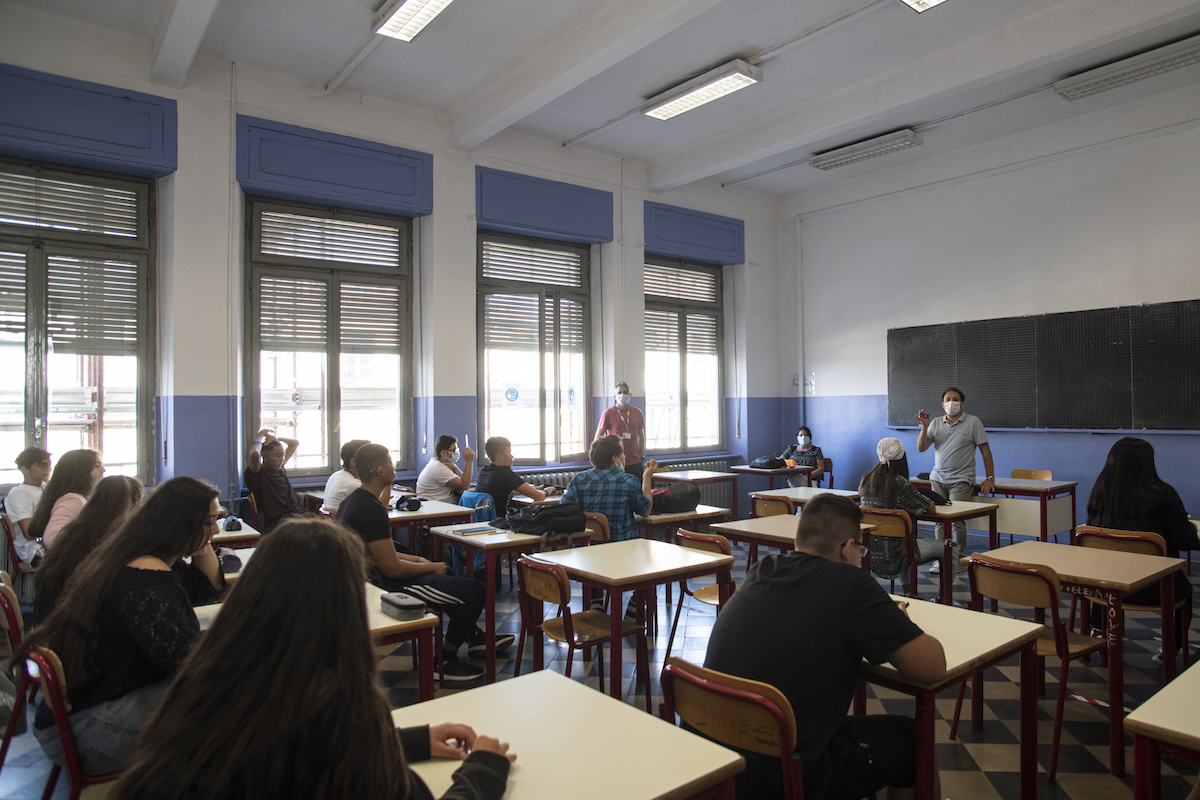After the pandemic, the father, and the (unfortunately largely silent) mental health emergency that swept the school, no one would believe that a law guaranteeing the presence of a psychologist in all facilities across the country could wait. Or at least nobody who has in mind what the situation in the classrooms is like throughout the boot. For this reason too, the Unione degli Universitori (UDU) and the Rete degli Studenti Medi have drafted a law that was also illustrated in the Chamber. It is an attempt to finally make the figure of the therapist binding within the school walls, not only to alleviate the uneasiness that is so common among young people today, but also to carry out real educational and training activities together with teachers and parents.
“We have been studying mental health at school for a year and immediately realized how difficult it is to find not only solutions, but also reliable data – he says Rolling Stone Camilla Velotta, Head of High School Students Network Psychological Support Projects – that’s why we launched a survey that received more than 30,000 responses, and an overwhelming percentage of these signaled malaise and a desire to have a specialist within the walls of the school. On March 22, we presented this proposal to make the figure of a psychologist compulsory in all schools at a press conference in the Chamber ». This is not a popular initiative (which would need to collect at least 50,000 signatures), but Udu and the Rete degli Studenti Medi presented the law to centre-left MPs who expressed their interest. “We want this character to be fully integrated into the school system – Velotta continues – so, for example, that he can hold further training courses within a multidisciplinary team of teachers and that he is also an effective link to external structures such as counselors and counseling services that already exist to intervene in the most serious cases».
However, do a little research to realize that this isn’t the first time Parliament has attempted to legislate on the subject. On December 4, 2018, Maria Teresa Bellucci (FdI) submitted a proposal with 11 articles to make the figure of the psychologist compulsory in all grades and grades. This was not discussed in the Senate. Emilio Carelli (Together for the Future) tried again in May 2021. Again no passage in the Senate. Finally, in November 2021, it was the turn of Patrizia Marrocco (Forza Italia); guess what: the law doesn’t reach the Palazzo Madama. It seems that it is not a priority for politics, or at least hasn’t been until now.
However, the usefulness of such a rule is evident in a country where 91% of students (from the Ask me how I am survey carried out by the Emilia-Romagna Economic and Social Research Institute) believe that having a psychologist is essential School. Italy is also the only European country that does not yet have uniform legislation throughout its territory. The point is precisely that: several schools have equipped themselves autonomously, as anyone who is a student, teacher or parent knows, but without official recognition and legally established practices, all seem to be moving in random order.
“Without a national directive, each region finds independently the regulatory and financial instruments to guarantee this service” – explains the psychologist Alberto Valsecchi, who has been working for years in different institutes in the Lecco area. “But in the end everything is left to the autonomy of the individual schools, which are often financed from the school fund (which the ministry provides for various special projects) or from family associations, bank foundations, etc..” During Covid the National Order of Psychologists and the Department of Education had signed a memorandum of understanding to try precisely to find a solution to this mess, but even in this case the tranches of funds that the school could request were split in two (September – December and January – June), and essentially the main flaws of the whole system remained: the lack of continuity and the fragmentation of financial resources.
“The call for permanent counseling centers in schools usually lasts a year – Valsecchi continued to Rolling Stone – and that is problematic because the patient must be able to count on continuity. In addition, there are other calls that also have shorter durations: for example, all sexual and digital education projects and even the workshops that I myself propose for parents can be the subject of different calls with different durations and different funding. All this is happening to me this year in a school in Colico, where I work: today I do a total of 100 hours of service in this institute for nine months, at the same time I practice my work in another school Structure: To do this, I had to win three different tenders. Last year I managed to have many more hours in a single institute: 240 in total because I followed the orientation, counseling and social education project at the same time».
We should identify with a student with weaknesses: if he contacts the school psychologist today, he probably needs to change him within a year or maybe even less (it depends on the length of the call, some can even be for a few months ). Chances are the person who takes care of his sex education (for a meager number of hours, incidentally) is someone other than the one who should be present in his difficult moments. When in doubt, who do you ask? At this point he should contact a private person if possible. If you can.

